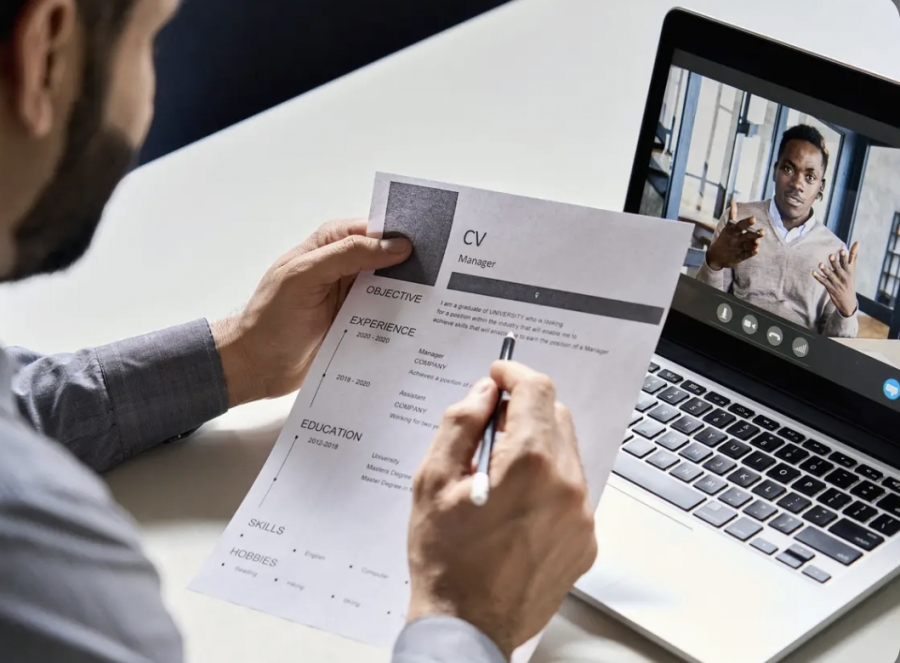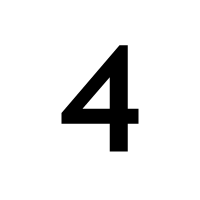- Afghanistan
- Åland Islands
- Albania
- Algeria
- American Samoa
- Andorra
- Angola
- Anguilla
- Antarctica
- Antigua and Barbuda
- Argentina
- Armenia
- Aruba
- Australia
- Austria
- Azerbaijan
- Bahamas
- Bahrain
- Bangladesh
- Barbados
- Belarus
- Belgium
- Belize
- Benin
- Bermuda
- Bhutan
- Bolivia
- Bonaire, Sint Eustatius, and Saba
- Bosnia and Herzegovina
- Botswana
- Bouvet Island
- Brazil
- British Indian Ocean Territory
- British Virgin Islands
- Brunei
- Bulgaria
- Burkina Faso
- Burundi
- Cambodia
- Cameroon
- Canada
- Cape Verde
- Cayman Islands
- Central African Republic
- Chad
- Chile
- China
- Christmas Island
- Cocos [Keeling] Islands
- Colombia
- Comoros
- Cook Islands
- Costa Rica
- Croatia
- Cuba
- Curaçao
- Cyprus
- Czech Republic
- Congo - Kinshasa
- Denmark
- Djibouti
- Dominica
- Dominican Republic
- Timor-Leste
- Ecuador
- Egypt
- El Salvador
- Equatorial Guinea
- Eritrea
- Estonia
- Ethiopia
- Falkland Islands
- Faroe Islands
- Fiji
- Finland
- France
- French Guiana
- French Polynesia
- French Southern Territories
- Gabon
- Gambia
- Georgia
- Germany
- Ghana
- Gibraltar
- Greece
- Greenland
- Grenada
- Guadeloupe
- Guam
- Guatemala
- Guernsey
- Guinea
- Guinea-Bissau
- Guyana
- Haiti
- Heard Island and McDonald Islands
- Honduras
- Hong Kong SAR China
- Hungary
- Iceland
- India
- Indonesia
- Iran
- Iraq
- Ireland
- Isle of Man
- Israel
- Italy
- Côte d’Ivoire
- Jamaica
- Japan
- Jersey
- Jordan
- Kazakhstan
- Kenya
- Kiribati
- Kosovo
- Kuwait
- Kyrgyzstan
- Laos
- Latvia
- Lebanon
- Lesotho
- Liberia
- Libya
- Liechtenstein
- Lithuania
- Luxembourg
- Macau SAR China
- Macedonia
- Madagascar
- Malawi
- Malaysia
- Maldives
- Mali
- Malta
- Marshall Islands
- Martinique
- Mauritania
- Mauritius
- Mayotte
- Mexico
- Micronesia
- Moldova
- Monaco
- Mongolia
- Montenegro
- Montserrat
- Morocco
- Mozambique
- Myanmar [Burma]
- Namibia
- Nauru
- Nepal
- Netherlands
- Netherlands Antilles
- New Caledonia
- New Zealand
- Nicaragua
- Niger
- Nigeria
- Niue
- Norfolk Island
- North Korea
- Northern Mariana Islands
- Norway
- Oman
- Pakistan
- Palau
- Palestinian Territories
- Panama
- Papua New Guinea
- Paraguay
- Peru
- Philippines
- Pitcairn Islands
- Poland
- Portugal
- Puerto Rico
- Qatar
- Congo - Brazzaville
- Réunion
- Romania
- Russia
- Rwanda
- Saint Barthélemy
- Saint Helena
- Saint Kitts and Nevis
- Saint Lucia
- Saint Martin
- Saint Pierre and Miquelon
- Saint Vincent and the Grenadines
- Samoa
- San Marino
- São Tomé and Príncipe
- Saudi Arabia
- Senegal
- Serbia
- Serbia and Montenegro
- Seychelles
- Sierra Leone
- Singapore
- Sint Maarten
- Slovakia
- Slovenia
- Solomon Islands
- Somalia
- South Africa
- South Georgia and the South Sandwich Islands
- South Korea
- South Sudan
- Spain
- Sri Lanka
- Sudan
- Suriname
- Svalbard and Jan Mayen
- Swaziland
- Sweden
- Switzerland
- Syria
- Taiwan
- Tajikistan
- Tanzania
- Thailand
- Togo
- Tokelau
- Tonga
- Trinidad and Tobago
- Tunisia
- Turkey
- Turkmenistan
- Turks and Caicos Islands
- Tuvalu
- U.S. Virgin Islands
- Uganda
- Ukraine
- United Arab Emirates
- United Kingdom
- United States
- U.S. Minor Outlying Islands
- Uruguay
- Uzbekistan
- Vanuatu
- Vatican City
- Venezuela
- Vietnam
- Wallis and Futuna
- Western Sahara
- Yemen
- Zambia
- Zimbabwe
Tips for Video Interviews: How to Prepare for and Succeed in a Video Interview

Tips for Video Interviews: How to Prepare for and Succeed in a Video Interview
Video interviews are becoming more prevalent as a component of the employment process. Understanding the precise needs of a video interview might help you feel more at ease and effective during the process. This article will explain what a video interview is, how to prepare for one, and how to deal with any complications that may arise.
What actually is a video interview?
A video interview is conducted outside of an employer's office. The interview is conducted by you and the interviewer using your phone or computer and video conferencing software. Pre-recorded video interviews may be used by an employer. Instead of speaking with someone, you will respond to interview questions that have been pre-recorded or presented in writing on the screen. You will record your responses to each question, and the employer will evaluate them afterwards. There is frequently a time restriction for your responses, and you may be given more than one opportunity to record your answer.
What should you do to prepare for a video interview?
Here are some actions you may take to guarantee a smooth video interview:
1. Chose the best place.
It is critical to select a peaceful and appropriate venue for your video interview. You want the interviewer to focus on you, so choose a location with little distractions. Choose a wall with a neutral background, preferably one that does not have any photographs or artwork behind you. Make sure you have adequate lighting, either natural or from a nearby light source. Set up the camera so that the interviewer can see the upper part of your torso.
It is critical that your location has a stable internet connection. If you are concerned about your home internet speed, you might check to see if your local public library has a private room that you can book. However, even if they provide superior internet, coffee shops and other social locations should be avoided.
2. Reduce interruptions.
You want to do everything possible to reduce or eliminate disruptions. Again, you want the interviewer to focus on your responses, and having a professional and silent video setup demonstrates your professionalism and sincerity about the job. Turn off your TV, turn off your phone, turn off any alarms, and turn off any other computer applications. If you reside with others, inform them of your interview and urge them to keep the noise level down.
Consider the time of day your interview will take place. If the interview is set around the time the mail arrives and it causes your neighbour's dog to bark, be sure you resolve this before the interview. Some sounds may be inevitable, but if you notify your interviewer ahead of time, they will be less distracting.
3. Dress Smart outfit.
Look presentable for your video interview, just like you would for an in-person interview. Before your interview, do some research on the corporate culture to get a sense of what's suitable. To appear your best on camera, avoid bright colours and patterns in favour of softer hues. If you're going to wear a tie, go for a solid colour rather than a patterned one. Adjust the lighting in the room if you wear glasses to reduce glare from the lenses.
Place the camera so that you are slightly up and centred on the screen. While the interviewer will most likely just see your upper half, it's still a good idea to dress professionally in case you need to stand up for whatever reason.
4. Analyse your body language.
Before a video interview, you should prepare by studying and being aware of your body language. A video interview can sometimes feel more casual, and this mentality might have a detrimental impact on your posture. Sit with your back straight and your shoulders wide in your chair. Place your feet on the ground and your arms on your lap or on the desk.
During an in-person interview, maintaining eye contact is critical. Avoid the impulse to stare straight at your interviewer on the screen when answering a question to preserve eye contact during a video interview. Instead, when you talk, you should look at the webcam. When you do this, your eyes are more likely to line up with the interviewer's gaze on the other end of the line. You can return your gaze to the screen while listening.
Also, when listening, nod and smile when appropriate to show that you're paying attention. When appropriate, use hand motions and keep your movements close to your body. Avoid fidgeting or averting your sight from the gadget.
5. Check your technology configuration.
Before the interview, double-check that all of your technology is operational. First, check that you are familiar with the programme that will be used for the interview. Before you may use any video conferencing applications, you must first register an account. Before the interview, make sure you have an account and that your software is up to date. You should then double-check your hardware. Examine the camera and audio on your computer or phone. If you intend to wear headphones during the interview, ensure sure they are compatible with the programme.
Check your internet connection and login in to the meeting right before your interview. Being a bit early to the interview, just like being a little early to an in-person meeting, is a show of professionalism. Check your audio and video to make sure everything is in working condition.
6. Conduct a practise call.
A practise call with a friend or family member is the greatest method to become acquainted with the technology you'll be utilising. Ask a buddy to give you honest comments on your look and eye contact using the software that your interviewer will use. Run it through a few times until everything seems natural. This is the moment to check your lighting, determine the ideal camera angles, and make sure your microphone is picking up your speech.
You may also prepare for the real interview by practising. Make a list of probable interview questions and have a buddy ask you a couple of them. It is beneficial to practise your responses as you grow more familiar with the format. You may also record your responses so you can see yourself and see what needs to be changed.
Here are a few pointers to help you succeed in a video interview:
Be truthful:
Be open and honest with the interviewer about your feelings about video interviews. Despite the fact that video interviews are becoming increasingly prevalent, not everyone has much experience with them. Tell your interviewer if this is your first video interview and you are nervous. It might lead to some fascinating small chat at the start of the interview.
You should also be truthful about your interview situation. If you are aware that there may be possible disruptions or that your internet connection is poor, be forthright about it. Your interviewer will appreciate your candour, and both of you will be better prepared to deal with any challenges that may arise.
Be ready for the unexpected:
You should be prepared for any complications that may arise during your interview. Despite your best efforts, your technology may malfunction on the day of the interview. If you believe you may have technological difficulties, ask the interviewer for a phone number where you can reach them if you do. If the video freezes, phone them at that number. Inquire whether you can continue the interview over the phone or if you can reschedule.
You should also be prepared for unexpected disruptions at the location of the interview. If an unexpected noise happens, apologise for the disruption and request a few seconds until the noise subsides. If the noise is too loud, turn off the microphone. If a housemate or pet enters the room while you're doing an interview, apologise to the interviewer, mute your microphone, and switch off your camera, and then deal with the interruption.
Prepare a pen and paper:
During your interview, you should bring a pen, paper, and some prepared notes with you. Having a copy of your CV on hand might also be beneficial, as you can refer to it when discussing particular examples from your prior job experience. Write down crucial issues you want to bring up in the interview as well as any questions you have for the interviewer. Keep your notes out of sight of the camera and try not to depend too much on them. You can refer to them as needed, but looking down at your notes all the time may become distracting to the interviewer.

 by Admin
by Admin


